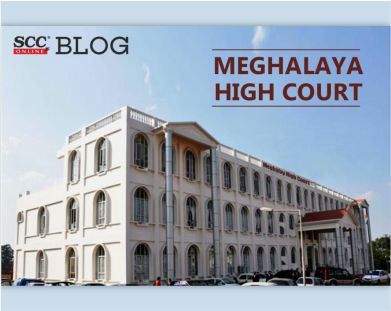Meghalaya High Court: The Petitioner by way of a Writ Petition under Article 226 of the Constitution of India challenged the order passed by Director General Assam Rifles, whereby his appeal against the compulsory retirement from service was rejected. The bench of W. Diengdoh, J., held that the petitioner was unable to make a case for interference by the Court, thus rejecting the petition.
Background of the Case
The petitioner was selected through the Central Police Organizations for the post of Assistant Commandant (Medical Officer) and was appointed as Assistant Commandant (‘MO’) in Assam Rifles Combatant branch in 2004.
In 2010,the petitioner was granted leave for 17 days on account of his mother’s illness, however, he did not resume duty even after the expiry of his leave for 28 days. It was alleged by the petitioner that no show cause notice or warning was issued to him.
Subsequently, in 2012, he applied for earned leave for 19 days on the grounds of his mother’s deteriorating health.By way of an application, the petitioner applied for extension of leave for another 20 days, however, no reply was received as regard to his application.
Thereafter, the petitioner was informed by the Commandant 3 (NH) Bn Assam Rifles due to his failure to report for duty on time, a convening order of Court of Inquiry was issued to the petitioner along with a tentative Charge Sheet framed under Rules 46 and 54(3) of the Assam Rifles Rules calculating the total number of unauthorized absences cumulating to 439 days.
Submission of the Petitioner
The petitioner submitted that the inquiry report was withheld from the petitioner which hindered him from filing his representation, which is a violation of the principles of natural justice as was also reiterated in Managing Director, ECIL, Hyderabad v. B. Karunakar, (1993) 4 SCC 727.
The petitioner further submitted that on the date of his discharge from service, he had completed 10 years of service, but the same would be counted as less than 10 years upon counting the number of days he had overstayed his leave. The penaltywas,therefore, disproportionate to the alleged offence of overstay of leave.
Submission of the Respondent
It was an admitted fact that the petitioner had overstayed his leave twice during his service. Though disciplinary proceedings were not initiated in 2010, it was included in 2012 proceedings in accordance with due process of law. While referring to Union of India v. Datta Linga Toshatwad, (2005) 13 SCC 709, it was recapitulated that the petitioner being a member of the disciplined force was expected to maintain the highest form of discipline and any deviation from it would attract heavy penalty.
It was further asserted that the present proceeding was governed under the provisions of Assam Rifles Act and Rules which did not require furnishing the copy of the inquiry report to the petitioner.
Case Analysis and Findings
Relying on Pradip Kumar Tomer v. Union of India, 2002 SCC OnLine Gau 291, the Court was of the view that the petitioner is a member of a discipline force, and it is incumbent upon him to uphold this standard even to the point of sacrificing self, notwithstanding the fact that he is also entitled to the privileges and benefits which comes with the service conditions. The Court also noted that in the case of the petitioner, being a highly intelligent and educated person and a medical officer at that, he is expected to exhibit prudence, discipline and common sense in his attitude to life and work. The fact that he remained absent without any recorded intimation for almost 439 days after sanctioned leave was granted to him for a period of only 19 days with effect from 14.02.2012 to 03.03.2012 speaks volume about his intent. Therefore, the Court held that no leniency can be allowed to such a person in such a situation.
[Rakesh Kumar v. Union of India, 2022 SCC OnLine Megh 665, decided on 01-12-2022]
Advocates who appeared in this case :
For the Petitioner:- Advocate S. Nath;
For the Respondent:- Dr. N. Mozika, DSG;
Advocate A. Pradhan.







